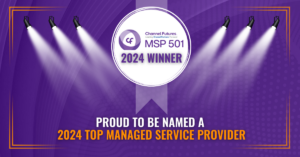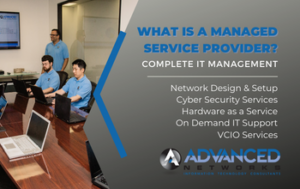Because email services are crucial to your business, it’s wise to seek expert advice from IT consultants in Los Angeles to ensure your choice of email service provider fits your requirements.
What Are Your Most Crucial Email Requirements?
It is not easy to evaluate email service companies unless you know what you need. Start by considering:
- The devices and software you use. Do you intend to keep using your present email client (like Microsoft Outlook)? Which mobile devices are used by your employees?
- How do you expect your company to expand? If you desire to hire a large number of people in the following months, be sure your email service provider makes it simple to create new accounts.
- What number of email addresses do you need? You’ll typically need one for each employee in your company, as well as any general addresses for sales inquiries and support.
Your Email Service Provider’s User Support
IT consultants in Los Angeles can advise you what kind of assistance your email provider can offer.
If you send and receive most of your emails within business hours, round-the-clock service is probably unnecessary. Make sure you find a service level agreement that specifies how quickly support will respond and what levels of service availability you can accept.
Email Software and Technology
If your company already has an email system, ensure it can be transferred to the new email service provider. Because there may be some downtime, be sure you trust the provider’s ability.
Aside from migration, your corporate email provider can provide services based on the following technologies:
- Post Office Protocol 3 (POP3) – Using POP3, you download email messages to your device and delete them from the central server. It usually limits each user to utilizing only one computer to send and receive email.
- Internet Message Access Protocol (IMAP) – IMAP keeps a log of messages read and replied to on a central server. Therefore, you can access your entire inbox from any computer.
- Microsoft Exchange – Microsoft has developed its email system. Messages are centralized, but it also includes other features like shared contact lists and calendars.
- HTTP or webmail – Webmail services allow you to send and receive emails using either a traditional email client or a web browser.
Choosing an email service provider that offers Exchange or IMAP will enable you to access your email from multiple locations or send and receive emails from mobile devices.
These systems are far more versatile than POP3.
Mailbox Size and Archiving
Each mailbox in your business is usually limited in size by the email service provider. This limit determines the maximum number of messages you may store at any given moment.
It’s shocking how quickly your inbox can fill up if you send and receive many emails and work with many attachments. Make sure your provider offers at least 5GB (gigabytes) of storage.
Mobile Email Access
Almost all email providers allow clients to send and receive email via mobile devices, such as smartphones. The majority of mobile devices support IMAP, POP3, and Exchange accounts.
However, make sure your email provider supports the mobile devices that your employees use. You should provide clear instructions for getting everything to work.
Security and Backups
If you are considering an email provider, ask how they protect and back up your data. Ensure that their email servers are redundant and that your data is backed up in multiple locations.
Many services additionally include anti-spam, anti-ransomware, and anti-virus security. This service adds an extra layer of protection by filtering suspicious emails before they reach your inbox.
You can find reliable, secure, cost-effective email hosting services with the help of our IT consultants in Los Angeles! Let Advanced Networks handle your email hosting needs. Our team of experts can assist you every step of the way. Contact us now for further information or a quote.




